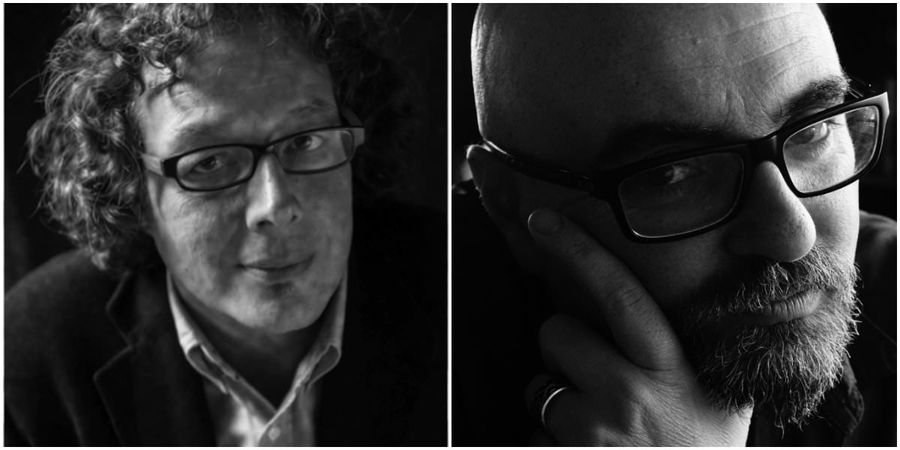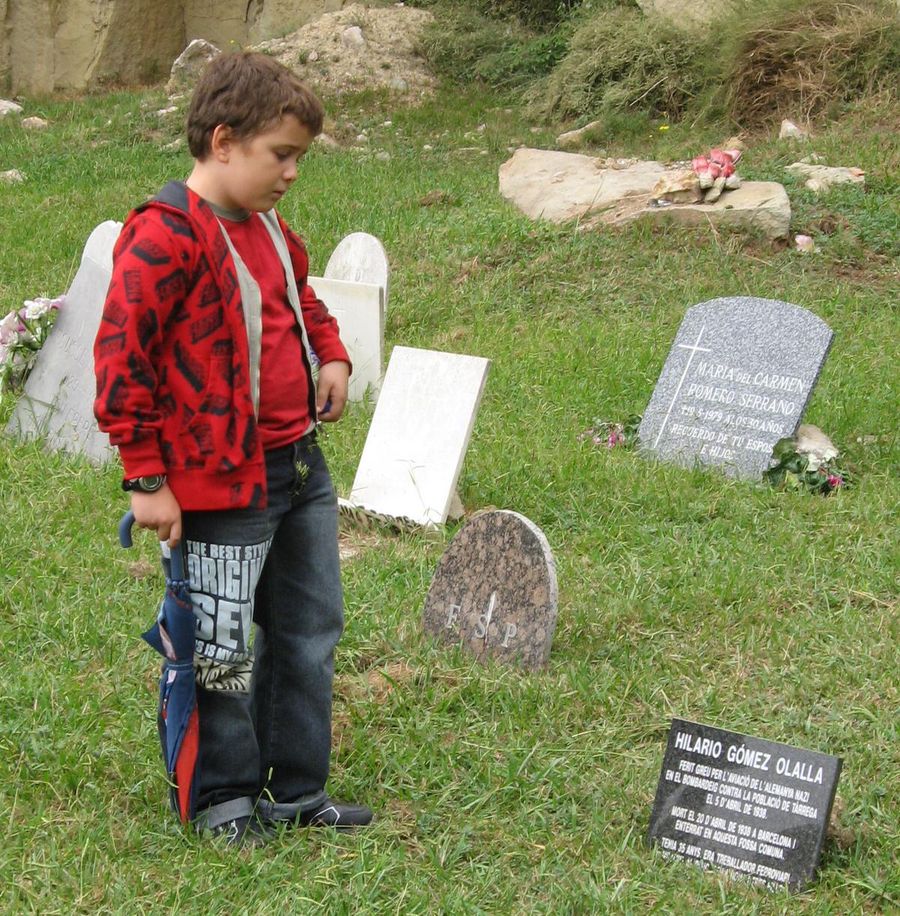News
Discussion | King Juan Carlos Chair Montse Armengou: Victims of Franquismo Series - Panel 1

With Jordi Guixé, Founder director of the European Observatory on Memories of the University of Barcelona; and Luis Martín Cabrera, Director of the Spanish Civil War Memory Project, University of California, San Diego
Organized by Montserrat Armengou, Spring 2017 King Juan Carlos I of Spain Chair in Spanish Culture and Civilization (**) as part of the panel series Victims of Franquismo: A Reparation That Never Comes.

Jordi Guixé and Luis Martín-Cabrera.
In Spain, the systematic violation of human rights during the Franco dictatorship remains an untreated social wound. Forty years of repression have been followed by forty years of democracy, but the state has only haltingly taken up this traumatic legacy.
Recording and preserving the stories and testimonies of Franquismo has seemed a moral imperative to journalists, writers, social historians, artists, and everyday Spaniards. Together they refuse silence and strive to remake national memory.
BIO
Jordi Guixé i Coromines (Barcelona, 1970) is a historian, founder director of the European Observatory on Memories (EUROM) of the University of Barcelona Solidarity’s Foundation and associate professor. With a Ph.D. in Contemporary History from both the University of Barcelona and Paris 3 (Mención Prêt d’Honneur du Ministère de la Culture), he is currently a member of several research groups, such as the Centre National de la Recherche Scientifique-Institut des Sciences Politique du Socials (CNRS), Centre d’Estudis de les Èpoques Franquista i Democràtica of the Universitat Autónoma de Barcelona (CEFID-UAB), the Group of Research on Memory and Society at the Universitat de Barcelona and the Centre de Recherche sur les Sociétés et Environments en Méditerranée (CRESEM) of the Université de Perpignan Via Domitia (UPVD). In 2016 he was elected vicechair of the Board of the International Committee of Memorial Museums in Remembrance of the Victims of Public Crimes (IC-MEMO), one of the 31 committees of the International Council of Museums (ICOM). He is also an expert in remembrance public policies and has worked on the creation of the Memorial Democratic of Catalonia as head of the projects’ department (2005-2012). He published La República Perseguida, Exilio y Represión en la Francia de Franco (PUV, 2012) and His last book, “Past and Power. Public Policies on Memory. Debates, from Global to Local” (UB 2016), is a collection of articles writen by specialists in multiple disciplines and discusses the key challenges of the conflict of memories in Europe and Latin America.
Since 2012 he is the director of the European Observatory on Memories (EUROM), and he is teaching at Arts Faculty as associate professor on the topic of Memory and Public Sapace. EUROM is a network promoted by the University of Barcelona which aims are analyzing remembrance policies developed in different countries and promoting new proposals linked to the multiple memories of our recent past.
Luis Martín-Cabrera is an Associate Professor in the Department of Literature at the University of California, San Diego. He is also affiliated faculty in the Department of Ethnic Studies, the Critical Gender Studies Program, and the Center for Iberian and Latin American Studies. A specialist in Spanish and Latin American Cultural Studies, Martín-Cabrera received a B.A. in French and Spanish from the University of Salamanca (Spain), an MA in Latin American Studies from Yale University, and a PhD in Romance Languages and Literatures from the University of Michigan, Ann Arbor. Martín-Cabrera’s research focuses primarily on the relationship between culture and politics. He is the author of two books – Radical Justice: Spain and the Southern Cone beyond Market and State (Bucknell UP, 2011 and Editorial Anthropos 2016) and Invisible Insurgencies: Activism and Resistance in the United States (Madrid, La Oveja Roja, 2015) - and numerous research articles, as well as a frequent contributor to alternative media outlets.
In addition, Martín-Cabrera is the Director of The Spanish Civil War Memory Project, a UCSD initiative to collect testimonies of the victims of Human Rights violations in Spain during the war and the ensuing dictatorship. He is currently working on a Digital Oral History Project, The Transandean Lithium Project, to document the impact of lithium extraction in the indigenous communities of Argentina, Chile, and Bolivia.

Personal memory of Montse Armengou's son, grieving his great grandfather, who was buried in a mass grave in Montjuic after he was killed during a Nazi bombing when he was working as a railroader.
~With additional support of Institut Ramon Llull.~
(__) This endowed Chair was established thanks to a gift from Carroll and Milton Petrie.